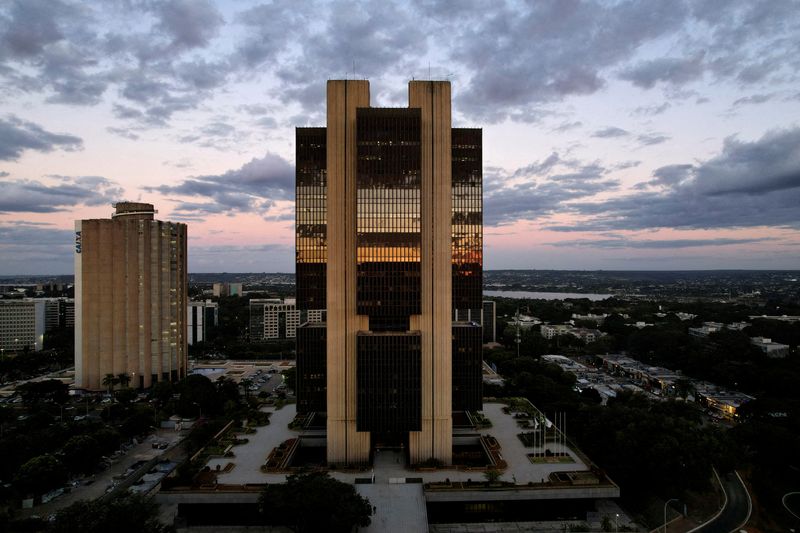By Marcela Ayres
BRASILIA (Reuters) - Brazil's central bank kicked off an interest rate-hiking cycle on Wednesday with a 25 basis-point increase, as expected, and signaled more increases ahead to tackle a challenging inflation outlook driven by stronger-than-expected economic activity.
The bank's rate-setting committee, known as Copom, voted unanimously to raise the benchmark Selic interest rate for the first time in over two years to 10.75%, in line with most forecasts.
While the U.S. Federal Reserve initiated its highly anticipated easing cycle earlier in the day, Brazil's central bank began moving in the other direction and left the door open to larger increases.
"The pace of future adjustments of the interest rate and the total magnitude of the cycle that just started will be determined by the firm commitment of reaching the inflation target and will depend on the inflation dynamics," Copom wrote in its policy statement.
Policymakers said the balance of inflation risks is now tilted to the upside, flagging a stronger-than-expected labor market and robust growth.
"The scenario, marked by resilient economic activity, labor market pressures, positive output gap, an increase in the inflation projections, and unanchored expectations, requires a more contractionary monetary policy," they wrote.
Gustavo Sung, chief economist at Suno Research, said he expected two more rate hikes of the same size in November and December, bringing the benchmark rate to 11.25% at year-end.
The central bank had held its policy rate steady at 10.50% in June and July after a series of cuts since last year to bring it down from a six-year high of 13.75%.
Expectations for a rate hike, the bank's first since August 2022, firmed after second-quarter activity significantly exceeded forecasts, driven by a robust labor market and rising wages in Latin America's largest economy.
However, bets on tighter policy had been building since late July, when central bank minutes indicated that policymakers would not hesitate to raise borrowing costs if needed amid growing upside risks for inflation.
Since then, the central bank's communication has turned more hawkish, including prominent messaging from monetary policy director Gabriel Galipolo, who was confirmed as President Luiz Inacio Lula da Silva's nominee to lead the central bank after Campos Neto's term expires in December.
Galipolo has shown discomfort with the bank's inflation models showing consumer prices surpassing the annual 3% target and indicated a rate hike was on the table.
Brazil's 12-month inflation reached 4.24% in August.
The central bank raised its baseline inflation forecasts to 4.3% for this year and 3.7% for 2025, up from 4.2% and 3.6% previously.
For the first quarter of 2026, considered the relevant horizon for monetary policy, the projection was 3.5%, up from the previous 3.4%.

In all three cases, estimates are above the 3% target, which has a tolerance margin of 1.5 percentage points on either side.
(This story has been corrected to show that the last interest rate hike was in August 2022, not June 2022, in paragraph 6)